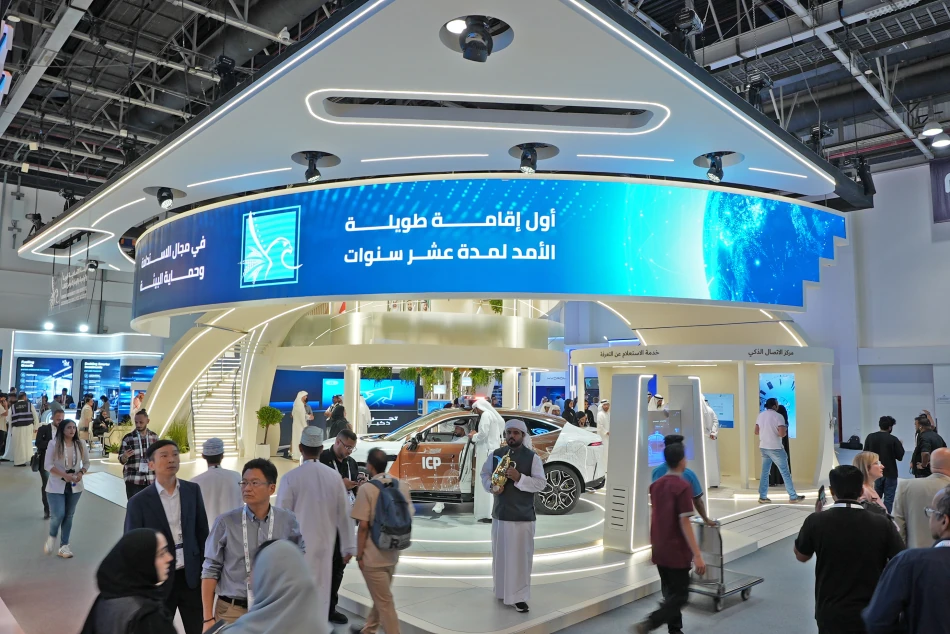
Four Cutting-Edge AI Projects Streamlining Customs, Borders, and Identity Services
The UAE's Federal Authority for Identity, Citizenship, Customs and Port Security is showing off four smart projects at GITEX Global 2025, running October 13-17 at Dubai World Trade Center. These projects use AI and advanced tech to make government services faster and smarter for residents and visitors.
The four projects include a smart violations vehicle, intelligent facial recognition system, AI-powered call center, and streamlined domestic worker services. All of them tap into artificial intelligence to handle tasks that used to require more human intervention.
Major General Suhail Saeed Al Khaili, the authority's director general, said improving operations and smart services is a top priority. The government wants to meet people's current needs while preparing for future demands.
What makes these projects stand out is that they're homegrown innovations. UAE nationals working at the authority developed these ideas and built the systems themselves. The authority is keeping pace with rapid tech changes through its digital transformation department, constantly looking for ways to improve existing services and create new ones.
Smart Violations Vehicle Changes Field Inspections
The smart violations vehicle is basically a mobile command center on wheels. It's equipped with AI-powered cameras that can spot visa and residency violations in real time. The system analyzes what it sees instantly and helps inspection teams respond faster and more safely.
The vehicle connects directly to the authority's databases, so officers can verify information and make decisions on the spot. It includes predictive technology that helps with immediate decision-making. This cuts down on traditional inspection methods and speeds up responses to urgent situations.
At GITEX, visitors can see the actual vehicle and watch how the smart system works. The authority is demonstrating live scenarios showing how the AI spots, analyzes, and verifies violations through interactive screens.
Facial Recognition Goes Beyond Basic Security
The intelligent facial recognition project creates a complete digital system that anticipates what users need. It uses AI to help people move smoothly through different pathways while offering modern, secure payment options.
The system speeds up verification and access to services in a proactive way. It connects different government and private platforms, giving officials real-time analytical dashboards that show usage patterns and how people interact with services.
The technology combines multiple verification methods including biometric data, personal photos, and ID numbers. It analyzes user behavior to customize services based on repeated patterns. The system can also capture and update photos automatically to keep identity records current.
The project works across personal use, tourism, healthcare, finance, and smart registration. It tailors services based on individual user characteristics and digital history.
AI Call Center Handles 20,000 Daily Calls
The smart call center represents a major shift in customer support. This AI-powered voice platform can understand questions, process requests, and provide immediate answers without human intervention.
The system improves communication quality with users and speeds up responses. It cuts down on repeat calls and waiting times by providing accurate, intelligent answers. Users can get services without needing to speak directly with staff members.
The infrastructure can handle more than 20,000 calls daily effectively. The AI system understands multiple dialects and accents. It includes real-time analysis and response capabilities based on data, plus integrated support across voice, digital, and service center channels.
One-Stop Shop for Domestic Worker Services
The domestic worker services project, called "Work Package," makes it easier for people to handle employment procedures for household staff. The authority partnered with the Ministry of Human Resources and Emiratisation and medical institutions across the country.
UAE citizens, GCC nationals, and residents can now manage domestic worker services through a single platform with minimal steps and inputs. Users can issue, renew, and cancel residence permits for domestic workers, plus handle medical examinations through the unified digital platform.
This project supports the government's zero bureaucracy program and the UAE's promise for future services. It reduces the number of service channels, steps, required visits, documents, and processing time for transactions.
The system focuses on improving user experience while boosting government efficiency. It's part of efforts to make the UAE more competitive and attractive as a global destination for living and working.
These projects show how the UAE is using AI not just for flashy tech demos, but for practical improvements to everyday government services. The focus on homegrown innovation and real-world applications suggests the country is building sustainable digital capabilities rather than just buying foreign solutions.
Most Viewed News

 Sara Khaled
Sara Khaled






